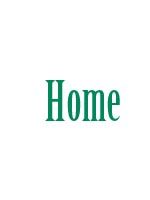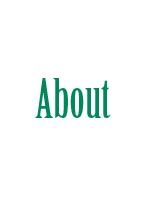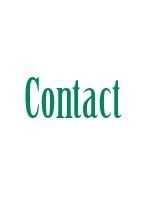WARNING: This post contains photographs that may upset readers.
It’s
no secret that I am a journalism student just one unit away from finishing my
degree.
Before
I started my degree I wanted to save the world. I wanted to get into war and
conflict reporting. I wanted to fix things.
But
then I studied journalism.
Among
many of the very interesting things I have learnt within my degree, I have
learnt that journalists are generally told not to interfere with human lives during war, conflict and famine, we are taught not to help.
Initially
I thought this was ridiculous, absurd, inhuman.
How
could a journalist be surrounded by death, by famine and murder, and not step
in?
How
could they care so much that they travel so far and put themselves in danger
zones, but then not ‘do anything’?
In fact
they do a lot.
--------------------------------------------------------------------------------------------------------------------------
Here is an interesting quote South African photographer Kevin Carter.
In
1993 he travelled to Sudan to document the
horrific famine.
Whilst
there he captured this photo.
 |
|
A vulture
watches a starving child during famine in Sudan, March 1993. By Kevin Carter/Megan Patricia Carter
Trust/Sygma/Corbis.
|
According
to Kevin, he heard a whimpering and went to investigate. He found the young girl, who had collapsed on
her way to a feeding centre. He moved closer to photograph her when the vulture
landed. At just ten metres away he took the shot. This shot won him the Pulitzer Prize. It also made
him the topic of a great debate, an ethical argument that has no really right or wrong outcome.
The
main argument was that he should have saved the girl. He certainly could
have helped the girl. But he didn’t. He captured the photo and walked away, knowing full well the consequences of leaving her there.
Kevin
later said that he wished he had helped the girl, and he regrets leaving her
there.
Fifteen
months after he shot this photograph he committed suicide.
Kevin was also renowned for taking many photographs that documented the brutality of the social upheaval that was occurring in South Africa at the time. Death was not new to him.
There was also a fear of catching diseases off the victims and the media were strongly advised not to touch them.
There was also a fear of catching diseases off the victims and the media were strongly advised not to touch them.
--------------------------------------------------------------------------------------------------------------------------
So,
what would you have done?
Me,
I would have helped her. I would have missed the shot, I would have run to her
and picked her up and told her it was all going to be okay.
That
is why I am not cut out to be a war and conflict reporter. That is why I would never be hired. I would have missed the shot, the conversations about it never would have occurred. Yet another young death would go unnoticed, as well as the thousands that died alongside her.
There
are many other stories similar to this. I remember when studying war and
conflict as a unit I read a memoir of a war reporter who covered the Cambodian 'War'.
He
talked about being told by the BBC to take photos of the town with, ‘less dead
bodies’. He talked about how they didn’t run his stories because the
photographs were too ‘offensive’. He talked about his regret of not helping.
It
is a constant theme. Regret. They want to step in to help, but they didn’t.
Or
did they?
Maybe
they didn’t run across the field and swoop up the young girl and rescue her on
the spot. She was gone; it’s a horrific fact. But many died, many still die and they go unnoticed until people like Kevin bring them to our attention.
The
job of a journalist is to report; to save lives by telling those of us at home
about the realities of what is happening so that we can force change and action.
It
is not to go rescue by physical assistance, but by their words. Kevin may have
been persecuted for his photograph. People may have been disgusted in his
action.
But they talked about it.
They learnt about it. They saw the state of Sudan and they were brought face to face with the reality, the victims.
But they talked about it.
They learnt about it. They saw the state of Sudan and they were brought face to face with the reality, the victims.
So
do I think Kevin was wrong, no. Do I think he was right? Well, I think perhaps he could have helped her. I tried to write about how it’s not his responsibility, and if you
help one person then when does it stop. But I can’t write that, I don’t
believe that.
It's such a fine line.
It's such a fine line.
He
was there to take photos. Not to directly save lives. But he could have saved
her.
I
don’t, however, think he should have been persecuted. He did more for Sudan
than majority of his persecutors did, and in fact they probably wouldn’t have
even known about it had he not snapped that shot.
I
just want to reconfirm that at the time Journalist were under strict
instructions not to help famine victims, primarily due to risk of disease. Kevin
was also witness to many horrific crimes in South Africa prior to this
photograph.
Although
it is not the journalist’s job to help their subjects their are those who do. Here is a really
interesting article about Nick Ut, who managed to snap a Pulitzer Prize winning photo, raise
awareness about the innocent victims of the Vietnam Way, and save a life.
--------------------------------------------------------------------------------------------------------------------------------
It’s
so easy for us to sit here and judge. My father and I constantly argue about
this. He is a firm believer that they should help; I am a firm believer that should
help sometimes.
Judge
me if you will but here is what I believe. I believe that a war and conflict reporter is there to do just that, report. They should not save a life at the sacrifice of their own safety, or the others around them. In turn, they should not risk or sacrifice anyones safety to get the photo. They should not, say, 'set up' a shot that could win them the Pulitzer Prize which may portray the events that are occurring, but may not have occurred had they not been there.
BUT I also believe that sometimes they must put the story before a human life. I know, I can't believe I am writing that. Yet that story could save many more lives by telling the public what they know, what they see, and what is happening. The life should not be taken because of the journalist, but I believe that sometimes inaction can lead to the best action.
Ideally, they could do both, as Nick Ut did. But that is not alway possible.
Some say that they should do what they believe is morally right, and what they can live with. I have found through most of my readings that no matter what actions the media takes they often feel as if they could have done more. They often feel that they let down those they reported on and walk away heavily traumatised by their experiences, many living day by day just waiting to report on the next conflict hoping to do more.
BUT I also believe that sometimes they must put the story before a human life. I know, I can't believe I am writing that. Yet that story could save many more lives by telling the public what they know, what they see, and what is happening. The life should not be taken because of the journalist, but I believe that sometimes inaction can lead to the best action.
Ideally, they could do both, as Nick Ut did. But that is not alway possible.
Some say that they should do what they believe is morally right, and what they can live with. I have found through most of my readings that no matter what actions the media takes they often feel as if they could have done more. They often feel that they let down those they reported on and walk away heavily traumatised by their experiences, many living day by day just waiting to report on the next conflict hoping to do more.
These
are my educated opinions on what journalist’s SHOULD do. This is not what I
could do.
I
could not put a photograph before a life. I could not put words before a life.
Especially knowing all that I do about editing and censorship, another story
for another day, and that this sacrifice might not even hit the headlines.
But
that, my friends, is why I no longer desire to cover war and conflicts. Maybe
one day I will be able to, but not in the near future.
--------------------------------------------------------------------------------------------------------------------------
To
all those who do, I thank you. I thank you for keeping me in the know. I thank
you for your lack of ignorance and for ignoring societies ignorance. I thank you for saving lives with your words,
because you do. Even if you save just one, it’s all worth it.
For
those who judge, just think seriously about it before you do. If you think that
reporters should have saved this life, maybe you should attend that protest.
Who knows whose life you might save?
The information on Kevin Carter, and photographs were taken from and remain the property of http://kevincarterpresentation.wordpress.com/







No comments:
Post a Comment